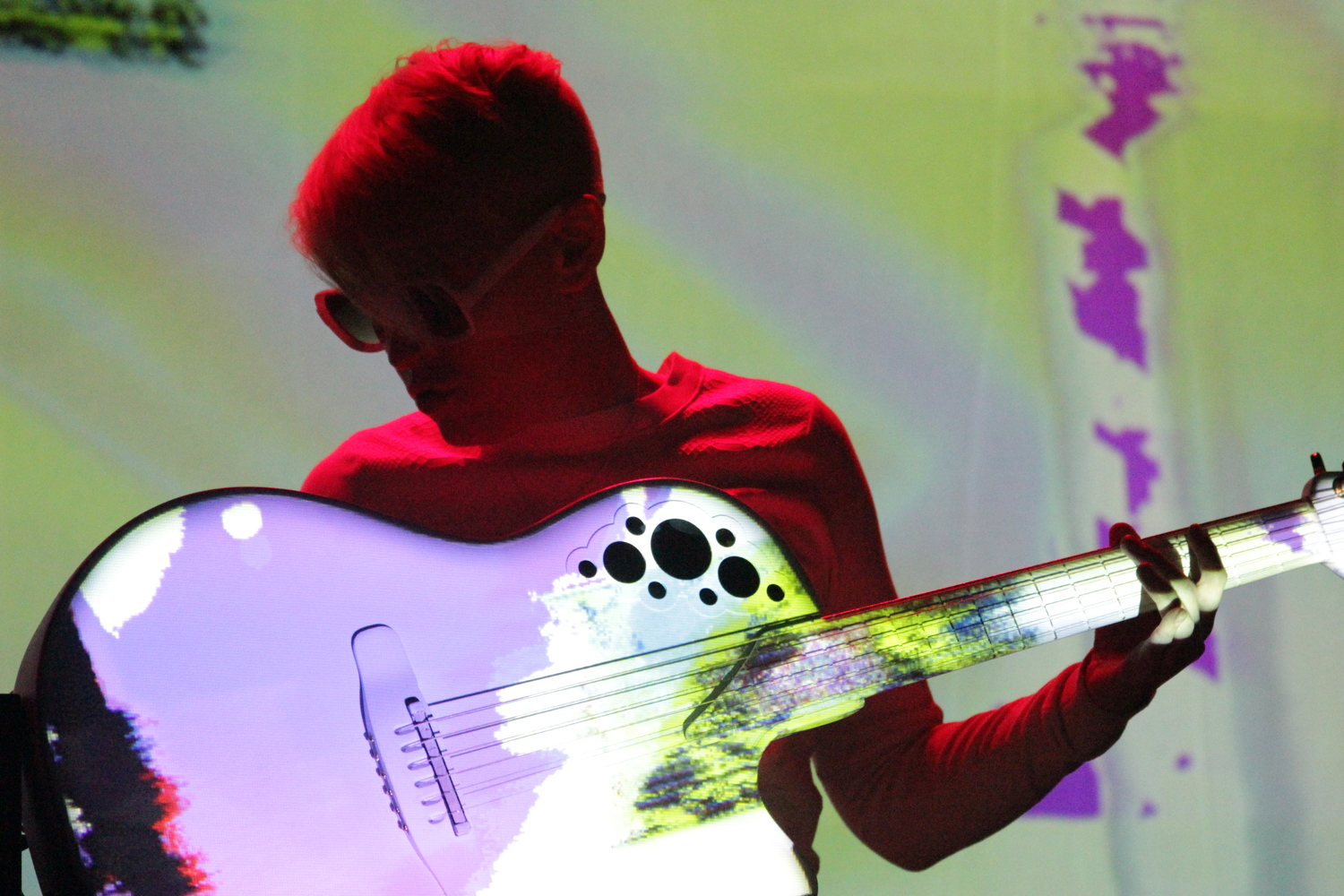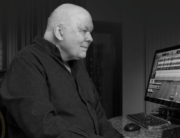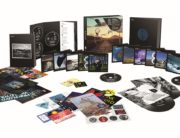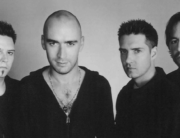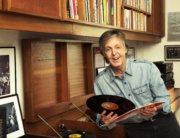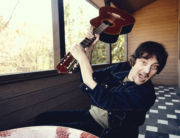BY MIKE METTLER – SEPTEMBER 24, 2017
 If there’s one thing you can predict about the iconoclastic avant-guitarist Kaki King, it’s that the only thing you expect her to do next is that she’ll do the unexpected, every time.
If there’s one thing you can predict about the iconoclastic avant-guitarist Kaki King, it’s that the only thing you expect her to do next is that she’ll do the unexpected, every time.
Over in my Audiophile column on Digital Trends, Kaki and I discuss her restless creative nature, including the philosophy behind her aurally pleasing new album Live at Berklee (Birncore), how to bring classical performance and composition into the modern era, and the ways to keep evolving as an artist.
But exclusively here on The SoundBard, Kaki and I discuss her views on surround sound, the value of guitar strings (both good, and “dead”), and her touring future.
Mike Mettler: Because I’m an audiophile dude, Live at Berklee is a record I’d love to hear in a 5.1 surround sound mix. I don’t know how many tracks you laid down for it, but. . .
Kaki King: Oh, wow. Cool. Well, I know orchestras have recorded in surround sound, but you’re still mixing yourself to a point that’s in front of you, while a sporting event and a movie are mixing to points all around you. As a performing group, we’re still mixing for an audience that’s seated in front of us. That’s why you get the two channels.
Mettler: Oh, I get that. But as I always like to say, life is in 360 degrees, and there’s always something interesting and different about the acoustics in any room or space you record in. Some performers mix their live surround to put the listener into a very specific seat in that room or hall, so that it makes you feel like you’re actually at that show. There’s no wrong way of doing it, of course. But it’s also interesting to do for studio material as well.
Kaki: Really? (slight pause) I mean, surround sound is very much an audiophile format. But I think the bulk of the universe of music listeners walk around with their headphones in, so you do have to say, “How in-depth do I want to go with this? How much money do I want to spend for however many potential user experiences there are?”
Surround sound is a much more interesting thing live. There just aren’t that many people who have that great of a surround sound setup at home who are willing to listen to records. Movies, gaming, and all of that stuff are different.
Mettler: For somebody who listens to the character of how your fingers move on strings, or how you go over the top of the fretboard — getting the subtleties of the performance like that are all sonically interesting in 5.1.

The signature image for Kaki King’s boundary-pushing 2016 multimedia project, The Neck Is a Bridge to the Body.
Kaki: Totally! Well, definitely moving forward, as I continue in this world of performing arts and multimedia, no matter what, my own personal sound design has to continue to grow and become more interesting.
[random guitar riffs/noises commence in the background] I’m actually changing the strings on my guitar right now.
Mettler: Yeah? You do have to keep them in pristine order, I suppose…
Kaki: Yeah, I don’t know. I kind of wait until I’ve thoroughly played them, and as they’re falling apart with rust… (both chuckle)
Mettler: That was going to be my question — do you let them actually rust? Do you let them get super-loose, or. . .?
Kaki: Well, you know, there’s a sweet spot, and it takes about three shows for them to get there. [Kaki continues with guitar strumming in background] And once they’re there, they can be there for seven or eight shows, potentially. But when the sweet spot’s gone, it’s gone, and you’re like, “Ahhhhhh, man! The strings are going to be all bright-sounding again.”
Mettler: Do you ever actually get attached to any of the strings to the point where you hesitate changing them out?
Kaki: Oh, totally! On some of my guitars, I have some intentionally dead strings. It’s actually a very cool sound, and it takes a helluva lotta time to get there.
I have some string sets that are old that I’ve saved, in case if somebody comes in and wants to record an old, dead sound on a guitar with newer strings. I wish some company would invent a package that would come with pre-dead strings.
Mettler: Yeah, and you could have a born-on date right on the package.
Kaki: Yeah, exactly! I bet someone could sell their strings after 20 gigs. They’d be so dead — and so cool-sounding! I should probably do that.
Mettler: You might have to open up another window on the Merch part of your site and sell some used Kaki strings. Since we’re talking about the songs you recorded for Live at Berklee, how aged are the strings you played there?
Kaki: Those strings are actually all very new, because I needed them all to sound nice, and new, and clean, and the playing to be excellent. But I may have changed them right before the first rehearsal and used them in a couple of the rehearsals, because you never want to play with totally brand-new strings.
Mettler: Do you see yourself still on the road 20 years down the line? Is that your role as a performer — to play live as long as you want to for your career?
Kaki: I think so. There’s probably going to be a few years where I don’t, but I said that when my first kid was born. My first tour back was maybe 2 or 3 months after my first child was born. I played a show in July, 4 days after we got home from the hospital with my son. Listen, this is my job. This is how I make money, this is how I support my family.
You know, FaceTime is amazing. (laughs) I FaceTime constantly. But the good news is when I’m home, I’m home. I don’t have anywhere to go, I don’t have any boss breathing down my neck, I don’t have to stay late at the office — I can be wholly present.
I’m also a freakin’ budget ninja. (MM laughs) I will find ways to cut corners to make things work when I’m out on the road. I’ll map out where I’m going to go and see if getting an Uber versus renting a car is cheaper. If I’m just gonna lay my head down for 6 hours and then get back out on the road, listen — I don’t need much in the way of creature comforts. I get down to the penny. Over the years, it’s just second nature. I’ve had to do it, because it’s the only way that’s kept me going.
Ideally, there would be a few years where the touring isn’t so intense, maybe when my kids are in high school, but I don’t see myself not doing this. It’s what I do. It’s my job, it’s what I like to do. I’m good at it, I’m good at taking care of myself. I’m good at not burning out, and enjoying seeing the world. So, no, I don’t see myself taking any considerable time off for any reason, because I don’t have to.
Watch Kaki King and the Porta Girevole Chamber Orchestra perform her song “Magazine” for Live at Berklee, right here:

